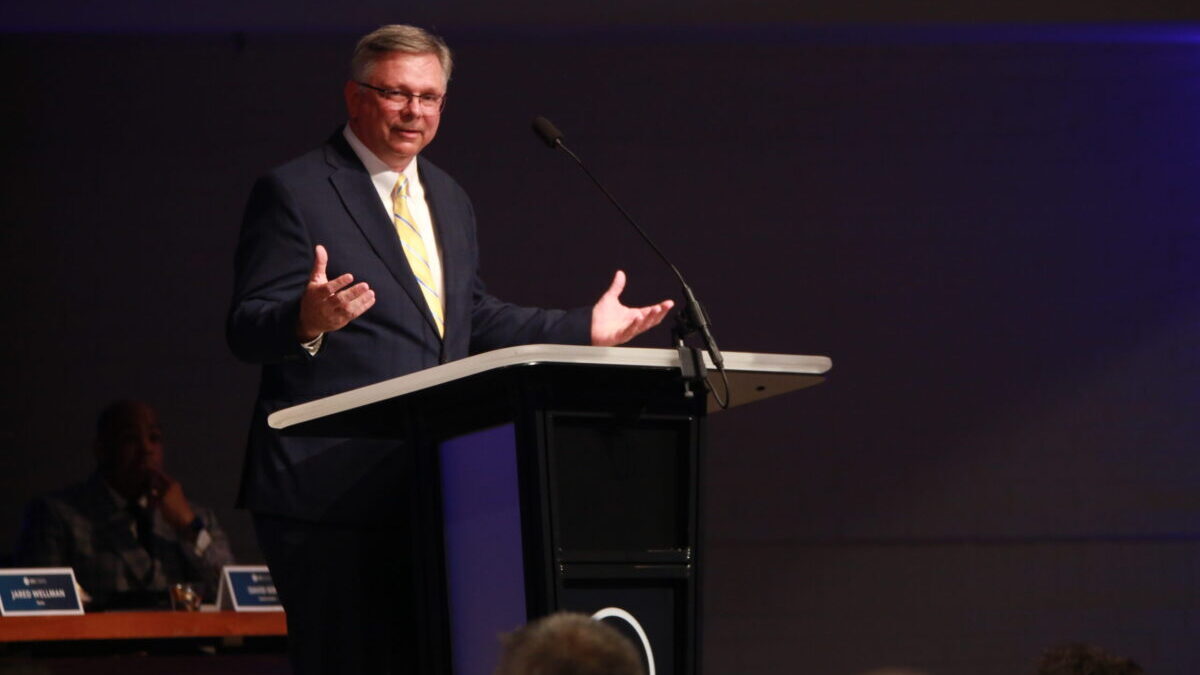The Southern Baptist Convention’s Abuse Reform Implementation Task Force has released new information about the Ministry Check database that will assist churches as they conduct background checks on potential staff and volunteers.
In a series of frequently asked questions on its website, released Feb. 27, the ARITF said Ministry Check will fulfill the goal approved by messengers to the 2022 Southern Baptist Convention: maintaining a record of “pastors, denominational workers, ministry employees, and volunteers who have at any time been credibly accused of sexual abuse and who have been or are associated with a cooperating Southern Baptist church or entity.”
First major challenge
Chairman Marshall Blalock previously said creating Ministry Check would be one of the group’s first major challenges.
“It’s a priority because it will enable churches to identify sexual predators in order to stop them from going from church to church to abuse others,” he told The Baptist Paper.
“In the end, the goal is for our churches to have the biblical and practical resources necessary to prevent sexual abuse and to have an authentic Christlike compassion to minister to survivors.”
The new FAQ outlines four qualifications that will meet the “credibly accused” standard: conviction for a crime of sexual abuse; civil judgment entered against the abuser for sexual abuse; confession of sexual abuse in a non-privileged setting; and determination by a qualified, independent third-party that the person is credibly accused, following a properly-conducted independent inquiry.
Names of pastors, denominational workers, or ministry employees may be submitted to Ministry Check by churches, entities, associations, survivors or their proxies, and other Baptist bodies. The FAQ page states that submissions not meeting the necessary evidentiary standard won’t be put on the website or disseminated publicly.
Preventing future abuse
In the update, the task force also addressed why relying on the National Sex Offender Registry isn’t sufficient to prevent future abuse, noting that the registry only includes people who have been convicted.
“Due to the effects of trauma, especially in a faith setting where respect for spiritual authority is strong, disclosure is often delayed until the statute of limitations has run [out], making conviction and inclusion on the National Sexual Offender Registry highly unlikely,” the task force reported.
Ministry Check will be established and maintained by Guidepost Solutions’ new Faith-Based Solutions division led by Samantha Kilpatrick, a graduate of Southeastern Baptist Theological Seminary who helped create the SBC’s Caring Well curriculum.
Guidepost recommendation
In his report to the Southern Baptist Executive Committee Feb. 20, Blalock recommended Guidepost to maintain Ministry Check. He also addressed concerns over a Guidepost tweet during gay pride month last year. Blalock said Guidepost has altered its social media engagement “so this will not be an issue going forward.”
In an earlier update, ARITF further explained the selection, noting that all of the organizations it considered had “publicly expressed views contrary to key Southern Baptist beliefs. Notably, Guidepost Solutions was the only firm which does not fund these causes in any form.”
In the latest update, the ARITF confirmed Faith-Based Solutions will not be making moral judgments for SBC churches or entities; the SBC has made a moral judgment about sexual abuse.
“Neither Faith-Based Solutions, nor the investigating firm a church or entity selected, will be making moral determinations,” he said. “Rather, they will be assisting our churches and entities by making a legal determination based on existing law, using the same evidentiary standard required by our civil justice system.”
More information about Ministry Check is available at abusereformtaskforce.net.










